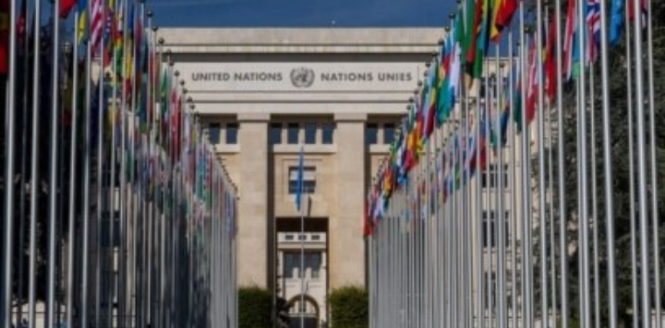Diplomatic Race Unfolds as Morocco Triumphs in UN Human Rights Council Leadership Bid
By Adeyemi Adekunle

In a high-stakes showdown that reverberated through the chambers of the United Nations, Morocco emerged victorious in Wednesday’s vote to spearhead the United Nations Human Rights Council, edging out a resilient South Africa in a nail-biting secret ballot held in Geneva.
Ambassador Omar Zniber, the Moroccan candidate, clinched a decisive 30 votes, while his South African counterpart, Ambassador Mxolisi Nkosi, garnered 17 in an atmosphere charged with tension and diplomatic fervor.
Before the ballots were cast, Nkosi vehemently labeled Morocco as the “antithesis” of the council’s principles, casting doubt on the North African nation’s fitness to preside over a body dedicated to upholding human rights on a global scale.
Morocco countered, accusing South Africa and other African states of obstructing its pursuit of this prestigious yet largely symbolic leadership role, amplifying the clash into a critical debate on the credibility of the council itself.
“The Kingdom’s election, supported by a large number of countries around the globe in spite of Algeria’s and South Africa’s efforts to counter it, demonstrates the trust and the credibility inspired by Morocco’s external actions…,” declared the Moroccan foreign ministry, underscoring the global ramifications of the dispute.
This uncommon public dispute within the African group, typically aligned in decisions, unfolded against the backdrop of Morocco’s contentious claim to sovereignty over Western Sahara, intensifying as the Algeria-backed Polisario
Front seeks independence in the region. Rabat vehemently denied allegations of human rights abuses against its opponents in the contested territory.
As part of an expansive diplomatic strategy, Morocco sought alliances, courting nations, including African neighbors, to secure support for its policies regarding the former Spanish territory.
However, South Africa, a key player, remained steadfast in its opposition, even organizing an event in Geneva last year to advocate for the self-determination of the Sahrawi people.
Tess McEvoy, Co-Director of the New York office of the International Service for Human Rights advocacy group, asserted, “Morocco must refrain from intimidating or carrying out reprisals against human rights defenders engaging with the U.N.”
Amid this geopolitical tug-of-war, human rights groups emphasize the critical role Morocco must play in safeguarding human rights as it assumes its leadership role.

A Nigerian trained investigative journalist, who cover various news beats in Nigeria.







